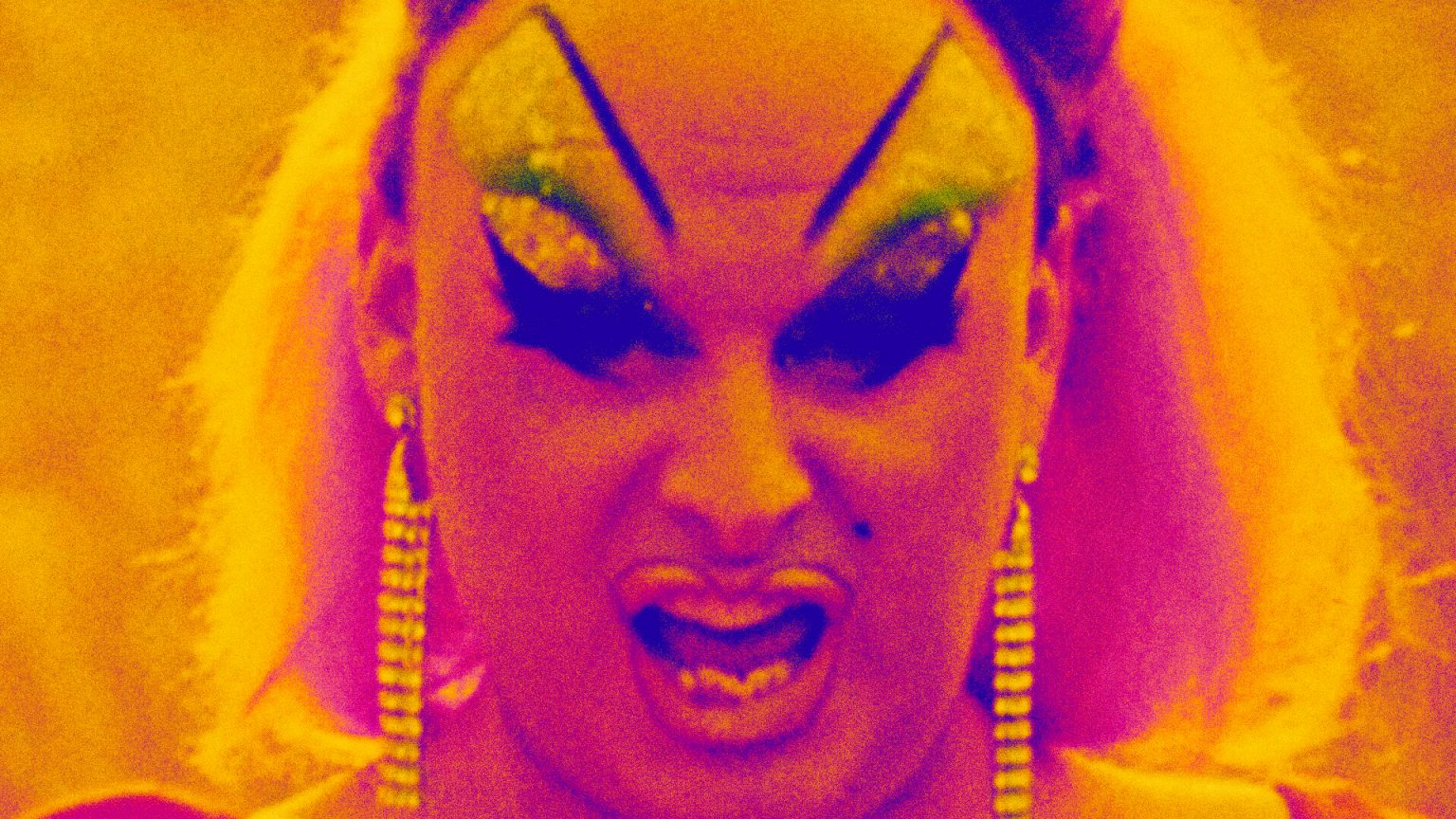Film history is peppered with auteur-muse relationships: Truffaut and Catherine Deneuve, Scorsese and DiCaprio, Lee and Washington, Baumbach and Gerwig. Symbiotic and often anything but romantic, these rare collaborations drive both parties to make work that truly says something. But no such auteur-muse relationship has ever been as eccentric, grotesque, hilarious, or flamboyant as that between the underground director John Waters and the nelly boy-turned-drag queen chanteuse, Harris Glenn Milstead, with whom he did LSD while watching movies by the director who basically invented the concept of ‘serving face’: Ingmar Bergman. Today, Milstead is simply known by the stage name that Waters borrowed from a Jean Genet novel: Divine.
You could say that Divine, who died thirty years ago today, was slain by the mainstream. Despite smooching his teen crush Tab Hunter in Polyester (1981), teaching Ricki Lake how to walk in high heels between shoots for Hairspray (1988), and a stint as a male character in an Alan Rudolph noir, these broader-reaching films didn’t necessarily help him find work. But at forty-two Divine was poised to make what was both a debut and a comeback on the Fox sitcom Married…with Children. But he passed away in his sleep from a heart attack the night before filming was scheduled to begin. Hollywood was a far cry from the Baltimore scene where Waters first filmed him in the eight-millimeter short Roman Candles (1966) and eventually the feature for which Divine became most renowned, Pink Flamingos (1972). The last thing Hollywood wanted from an actor in 1988 was a drag persona. Let alone a heart.
Growing up, Divine had a number of muses of his own. Still trying to pass for a preparatory schoolboy in his teens and determined to be the envy of any room he worked, Divine would gently ‘direct’ his girlfriend’s make-up and clothing choices. And when he worked up the nerve to wear hosiery and a wig to a costume party, it was as his favorite actress, Elizabeth Taylor, circa Butterfield 8. In the distended mask of femininity, Divine found an outlet for the torment he’d suffered at the hands of his masculine peers. As his character in Pink Flamingos announces, You stand convicted of assholeism! The proper punishment will now take place.” By the same token, Elizabeth Taylor’s famous line, “Put on some lipstick and pull yourself together,” might’ve been his mantra, but Divine may have also added a third verse: “and pull yourself apart for art.”
When watched sequentially, the early Waters-Divine midnight movies—Roman Candles (1966), Eat Your Makeup (1968), The Diane Linkletter Story (1969), Mondo Trasho (1969), Multiple Maniacs (1970)—illustrate the gradual solidification of a look that would become infamous, often replicated, and never duplicated. Over the course of five years, the make-up became more garish, the dresses more elaborate, the girdling more operatic. Divine knew the recipe for a drag performance requires one-third bad taste and two-thirds Type A scruples. And that seriousness allowed for play. In Jeffrey Schwarz’s 2013 documentary I Am Divine, a friend mentions Divine’s low tolerance for actors who hadn’t fully learned their lines. Waters, who’d only made one film before meeting Divine in the radical Baltimore scene, was also still polishing his assets. Meanwhile, fresh-faced makeup artist Van Smith (who still collaborates with Waters) developed the idea of shaving Divine’s hair back to the crown to give him an elongated forehead to use as a canvas for extraterrestrial eyeshadow and insect antennae eyebrows. All this was bound to create something groundbreaking.
Drag, through its exaggeration of femininity, can be an easy target for accusations of misogyny. The low- and no-budget indies that compose the bulk of Divine’s filmography have been accused of a great many things, from bestiality to anarchism. And the argument that the work is of detriment to women is one of the weakest. If anything, Eat Your Makeup and The Diane Linkletter Story, two of Waters’ flippantly biographical short films, show how screwed up womanhood already is. The Diane Linkletter Story, originally meant to be a camera test, wound up becoming an indictment of the famous entertainment family whose daughter Diane killed herself while under the influence of LSD. In full regalia, Divine plays Diane. In Eat Your Makeup a governess forces the children she’s charged with to dance effeminately for her and her boyfriend’s pleasure until they drop dead from exhaustion. The story warns us that beauty kills. Though a footnote, Divine steals his scenes in the movie. In the background, he plays Jackie Kennedy (complete with her trademark pillbox hat attached to his wig) reenacting President John F. Kennedy’s assassination. Filmed a little over a year after JFK’s death, the moment is unquestionably offensive but groundbreaking: Divine was the first person to ever portray the suffering First Lady and the grisly circumstances of her husband’s demise on film.
Both Makeup and Linkletter are outrageous in a way that comments on the outrageous way women were treated in mid-century America. It’s a sentiment Divine was able to fully channel in the 1981 feature Polyester, a film that transports the dysfunctionality of Pink Flamingos’ trailer park back to the suburbs where it belongs. Described by Waters as “Leave It to Beaver on speed,” Polyester aesthetically de-fanged Divine, swapping out his cocktail dresses for a Miu Miu. He was initially horrified, bursting into tears because the costumes weren’t glamorous. And, ironically, around that same time, the film that fully defined Divine’s edgier look and made him a cult and pulpit name, Pink Flamingos, became the bane of his existence. A scene where he puts dog excrement in his mouth became Flamingos’ calling card for years to come. Therein rested the catch-22 that, with no help from drugs and rich foods, killed the greatest drag performer of the 20th century: the underground was cash-strapped and beautiful, and bourgeois America had all the money and no taste, good or bad.
Want more? Check out the films of Divine collaborator, John Waters, right here on Fandor.




